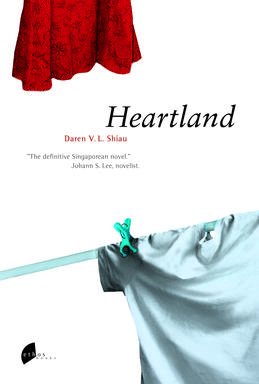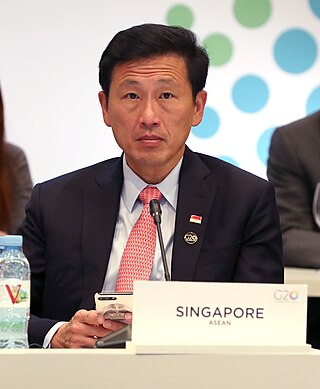Related Research Articles
Politics of Malaysia takes place in the framework of a federal representative democratic constitutional monarchy, in which the Yang di-Pertuan Agong is head of state and the Prime Minister of Malaysia is the head of government. Executive power is exercised by the federal government and the 13 state governments. Legislative power is vested in the federal parliament and the 13 state assemblies. The judiciary is independent of the executive and the legislature, though the executive maintains a certain level of influence in the appointment of judges to the courts.

Operation Coldstore was the code name for a covert anti-communist security operation that took place in Singapore on 2 February 1963, which was then an internally self-governing state within the British Empire. It led to the arrest of 113 people, who were detained without trial pursuant to the Preservation of Public Security Ordinance (PPSO).

Thum Ping Tjin, also known as PJ Thum, is a Singaporean historian, journalist, podcaster, activist and former swimmer. Thum was a national swimmer who participated in the 1996 Summer Olympics, and was the first Singaporean to swim the English Channel.
The Primary School Leaving Examination (PSLE) is a national examination in Singapore that is administered by the Ministry of Education and taken by all students near the end of their sixth year in primary school before they move on to secondary school. The examination test students' proficiency in the English language, their respective mother tongue languages, mathematics and science. Students have about two hours to complete each subject paper except for certain components of language subjects. Students answer multiple choice questions by shading their responses on a standardized optical answer sheet (OAS) that uses optical mark recognition to detect answers or by writing their workings and/or answers on the question booklet itself for certain sections of the paper.

Yasmin binti Ahmad was a Malaysian film director, writer and scriptwriter. She was the executive creative director at Leo Burnett Kuala Lumpur. Her television commercials and films are well known in Malaysia for being humorous and touching. Her work crossed cross-cultural barriers, particularly her ads for Petronas, the national oil and gas company. Her works have won multiple awards both within Malaysia and internationally. In Malaysia, her films were highly controversial due to their depiction of events and relationships, which have been considered 'forbidden' by social conservatives, especially hard-line interpretations of Islam. She was a central figure of the "first" New Wave of Malaysian cinema.

The National Arts Council (NAC) is a statutory board established on 15 October 1991 to oversee the development of arts in Singapore. It is under the purview of the Ministry of Culture, Community and Youth. The NAC provides grants, scholarships, awards and platforms for arts practitioners, as well as arts education and programmes for the general public.
Alfian bin Sa'at, better known as Alfian Sa'at, is a Singaporean playwright, poet, and writer. He is known for penning a body of English- and Malay-language plays, poems, and prose exploring race, sexuality, and politics, topics considered provocative in Singapore. Alfian has also translated Malay-language novels by Malay Singaporean writers to English. Alfian has received a number of national literature awards, such as the 2001 Young Artist Award and three Life! Theatre Awards for Best Original Script. Alfian is the resident playwright of theatre group W!LD RICE.
Farish A. Noor also known as Badrol Hisham Ahmad Noor is a Malaysian academician, historian, and political scientist that is currently serving as a professor of Politics and Political Science at the Faculty of Social Sciences, International Islamic University of Indonesia.

Thio Li-ann is a Singaporean law professor at the National University of Singapore. She was educated at the University of Oxford, Harvard Law School and the University of Cambridge. In January 2007, she was appointed a Nominated Member of Parliament (NMP) in Singapore's 11th Parliament.
Nora Samosir is a Singaporean actress of Indonesian descent who won a 2002 Life Theatre Award for Best Supporting Actress. She has been active in the Singapore theatre scene since 1979 and has worked in television and film. Some of her more notable performances include The Swallowed Seed (2002) and Revelations (2003)

Heartland is the first novel written by Daren Shiau. The book received the Singapore Literature Prize Commendation Award in 1998, together with Alfian Sa'at's Corridor. In 2007, an academic edition of Heartland was adopted into a textbook for Singapore secondary schools offering English literature in their GCE O-Level curriculum.
Dato Maharaja Lela or Lela Pandak Lam was a chief and nationalist from Perak. He was a leader who later led the struggle against British forces in Perak. Together with other leaders such as Dato' Sagor, he planned an alliance to assassinate James W. W. Birch, the British Resident of Perak. His decision was approved in a meeting at Durian Sebatang, chaired by Sultan Abdullah on 21 July 1875.

The Malaysia Agreement, or the Agreement relating to Malaysia between United Kingdom of Great Britain and Northern Ireland, Federation of Malaya, North Borneo, Sarawak and Singapore (MA63) was a legal document which agreed to combine North Borneo (Sabah), Sarawak, and Singapore with the existing states of Malaya, the resulting union being named Malaysia. Signed in London, United Kingdom, the agreement has been in effect since 16 September 1963; Singapore was subsequently expelled from Malaysia not long after this agreement, becoming a sovereign state on 9 August 1965.

Ong Ye Kung is a Singaporean politician and former civil servant who has been serving as Minister for Health since 2021. A member of the governing People's Action Party (PAP), he has been the Member of Parliament (MP) representing the Sembawang Central division of Sembawang GRC since 2015.
Syed Farid Alatas is a Malaysian author and educator, serving as a professor in the Department of Sociology at the National University of Singapore.

The feminist movement in Malaysia is a multicultural coalition of women's organisations committed to the end of gender-based discrimination, harassment and violence against women. Having first emerged as women's shelters in the mid 1980s, feminist women's organisations in Malaysia later developed alliances with other social justice movements. Today, the feminist movement in Malaysia is one of the most active actors in the country's civil society.
Madrasahs in Singapore are full-time, religious institutions that offer a pedagogical mix of Islamic religious education and secular education in their curricula. While the Arabic term 'madrasah' literally translates to 'school', whether religious or secular, the term 'madrasah' is legally and colloquially defined in Singapore today as an 'Islamic religious school'. There are currently six madrasahs in Singapore offering primary to tertiary education, namely, Aljunied Al-Islamiah, Irsyad Zuhri Al-Islamiah, Al-Maarif Al-Islamiah, Alsagoff Al-Arabiah, Al-Arabiah Al-Islamiah, and Wak Tanjong Al-Islamiah. Four of them are co-educational, while the other two offer madrasah education exclusively to girls.

The Select Committee on Deliberate Online Falsehoods is a select committee of the Parliament of Singapore that was formed on 11 January 2018 to examine and report on the problem of deliberate online falsehoods and to recommend strategies to deal with them.

The Administration of Muslim Law Act is a Singapore statute that pertains to regulation of Muslim religious affairs, establishing the creation of a religious council to offer advice on matters related to the Muslim religion, and the creation of a Syariah Court in Singapore. The act was passed in 1966 and came into force on 1 July 1968.
References
- ↑ "Dr Iza Hussin". Department of Politics and International Studies, University of Cambridge . 27 August 2014. Retrieved 20 January 2022.
- ↑ Elizabeth Shakman Hurd; Nadia Marzouki (3 March 2001). "Is There a Right to Heresy?". Boston Review. Retrieved 20 January 2022.
- ↑ Timothy P. Daniels (February 2019). "Review: The Politics of Islamic Law". Journal of Asian Studies. 78 (1): 240.
- ↑ "Book Review: The Politics of Islamic Law: Local Elites, Colonial Authority and the Making of the Muslim State by Iza R. Hussin". London School of Economics. 15 November 2016. Retrieved 20 January 2022.
- ↑ al, Abdullah; alusi (2015-04-27). "Cambridge Debate: Is the West to Blame of Islamic Extremism (Terrorism)?". Abdullah al Andalusi. Retrieved 2022-09-03.
- ↑ "SINGAPORE: Open Letter on PJ Thum and Academic Freedom in Singapore". The News Lens. May 2018. Retrieved 20 January 2022.
- ↑ Anna Maria Romero (9 October 2019). "After Ong Ye Kung's speech in Parliament, netizens are posting Alfian Sa'at's poems". The Independent Singapore News. Retrieved 20 January 2022.
- ↑ "3,317 academics from around the world call on Turkey to respect university autonomy". bianet. 4 February 2021. Retrieved 20 January 2022.
- ↑ "Cambridge University Libraries Decolonisation Working Group". 11 January 2021. Retrieved 20 January 2022.